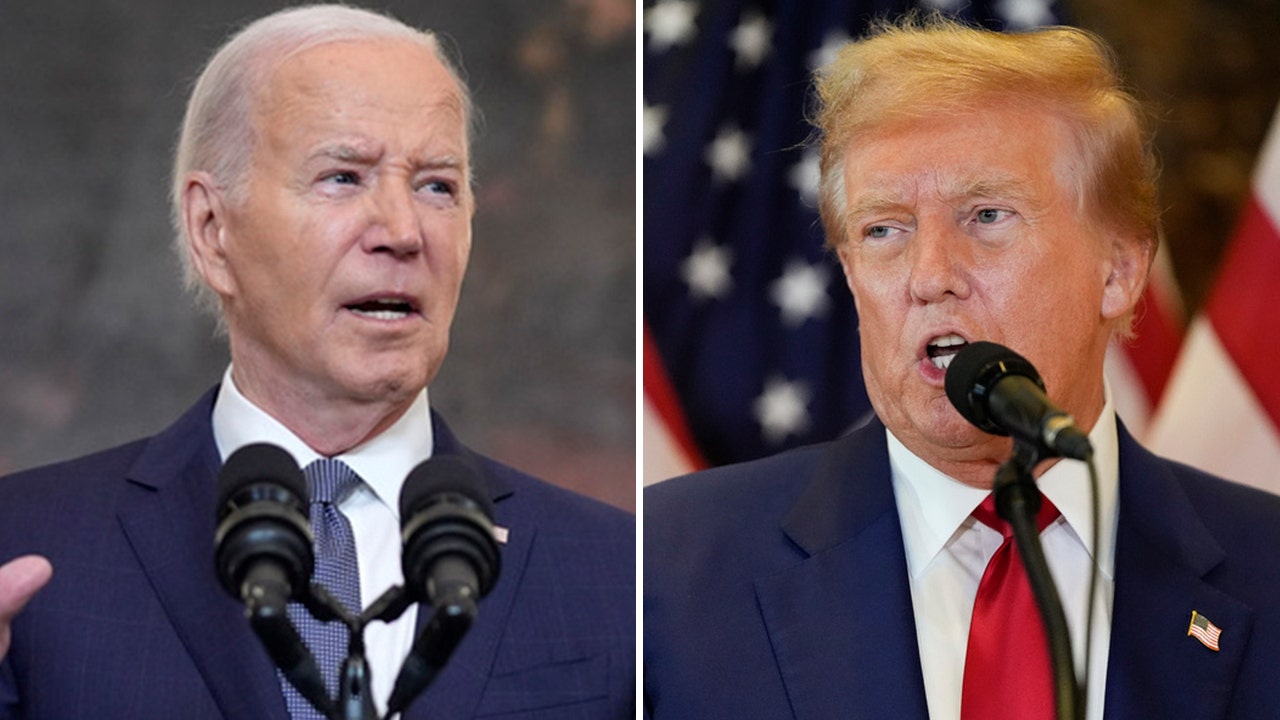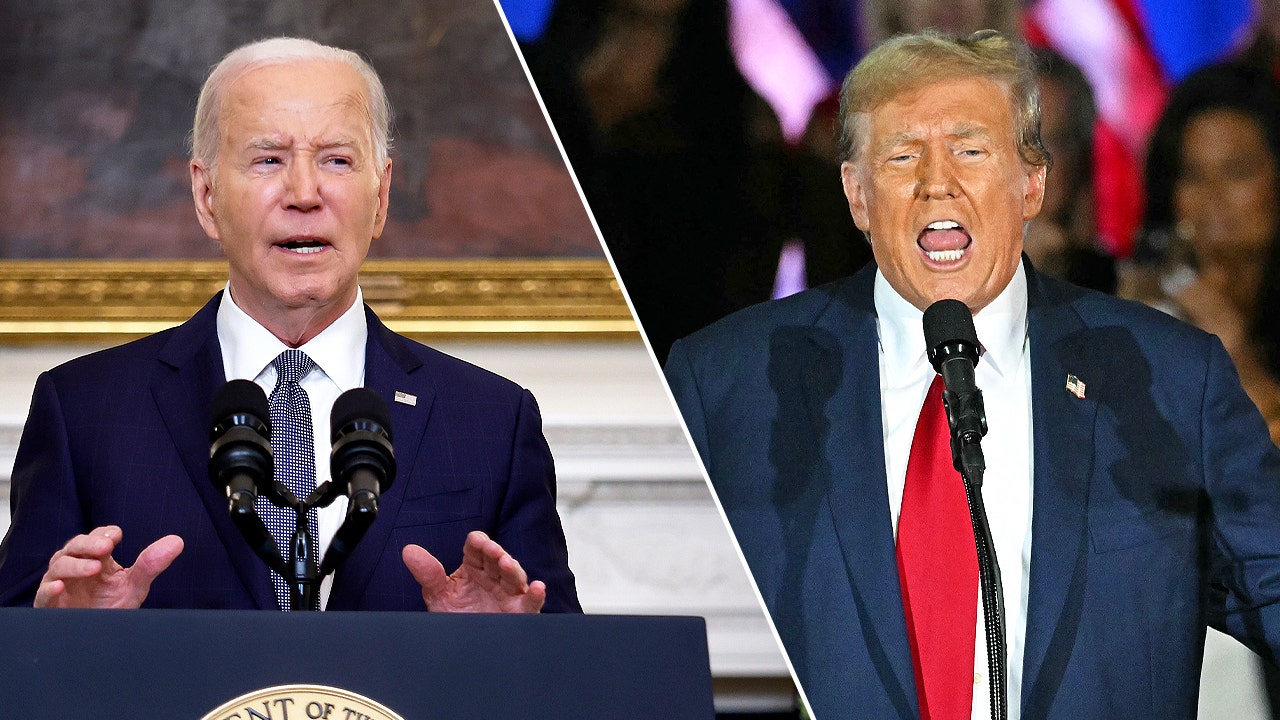California
California advances legislation cracking down on stolen goods resellers and auto theft
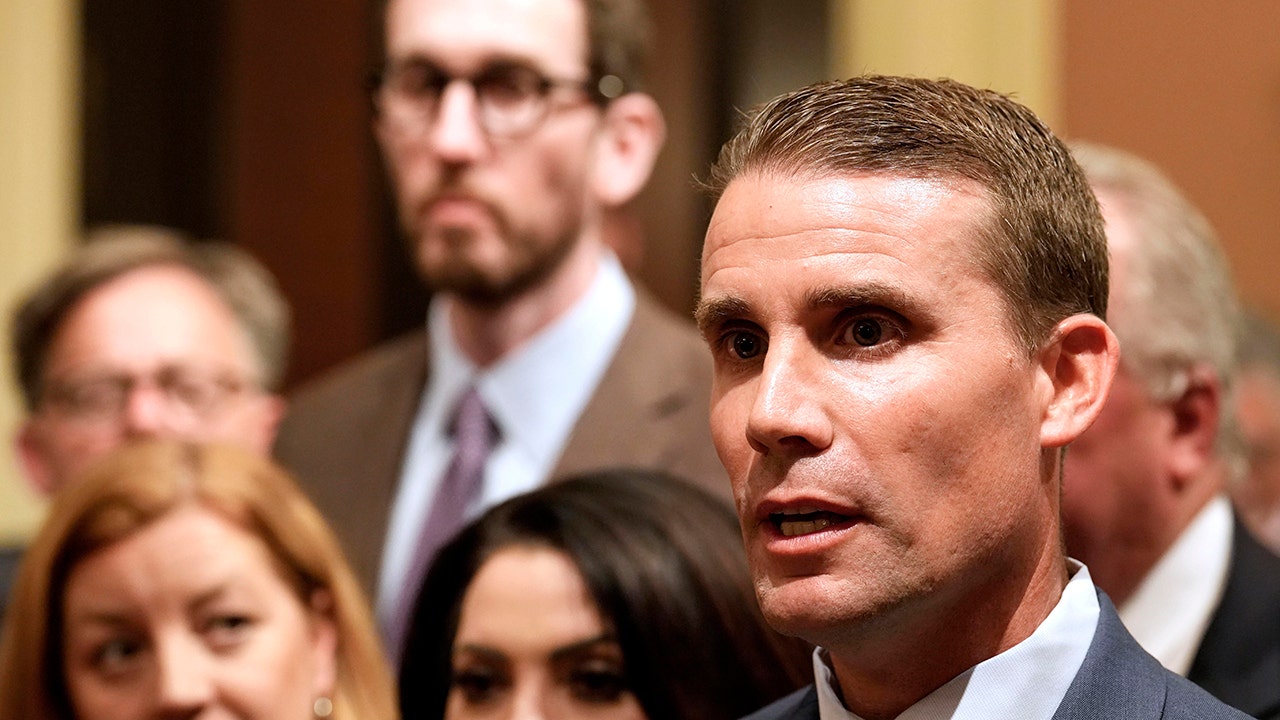
The California Senate approved a bipartisan package of 15 bills Wednesday that would increase penalties for organized crime rings, expand drug court programs and close a legal loophole to make it easier to prosecute auto thefts.
One proposal would require large online marketplaces — like eBay and Amazon — to verify the identities of sellers who make at least $5,000 profit in a year, an attempt to shut down an easy way to sell stolen goods.
CALIFORNIA LAWMAKER’S MIC CUT OFF WHILE READING BILL TO END SANCTUARY STATE LAWS, SAYS DEMS ‘DON’T CARE’
“This is not a game,” said Senate President Mike McGuire, a Democrat who represents the North Coast, adding that he hopes to get the bills to Gov. Gavin Newsom’s desk within weeks. “We are working together for safer California, putting aside politics and making sure we do right for our communities.”
It normally takes months for lawmakers to deliver bills to the governor in California, but the commitment to quick actions is driven by a new get-tough-on-crime strategy in an election year that seeks to address the growing fears of voters while preserving progressive policies designed to keep people out of prison.
California state Senator Mike McGuire, D-Healdsburg, right, talks to reporters at the Capitol in Sacramento, Calif., Aug. 28, 2023. California lawmakers on Wednesday, May 22, 2024, advanced more than a dozen bills aimed at cracking down on repeat shoplifters and car thieves, part of a new get-tough-on-crime strategy that seeks to address voter concerns while preserving progressive policies to keep people out of prison. (AP Photo/Rich Pedroncelli)
Large-scale thefts, in which groups of people brazenly rush into stores and take goods in plain sight, have reached a crisis level in the state, though the California Retailers Association said it’s challenging to quantify the issue because many stores don’t share their data.
The Bay Area and Los Angeles saw a steady increase in shoplifting between 2021 and 2022, according to a study of the latest crime data by the Public Policy Institute of California. Across the state, shoplifting rates rose during the same period but were still lower than the pre-pandemic levels in 2019, while commercial burglaries and robberies have become more prevalent in urban counties, according to the study.
Assembly lawmakers also advanced several other retail theft measures Wednesday, including a bill authored by Assembly Speaker Robert Rivas taking aim at professional theft rings. It would expand law enforcement’s authority to combine the value of goods stolen from different victims to impose harsher penalties and arrest people for shoplifting using video footage or witness statements. The measure also would create a new crime for those who sell or return stolen goods and mandate online sellers to maintain records proving the merchandise wasn’t stolen and require some retail businesses to report stolen goods data.
Lawmakers also passed proposals that would crack down on cargo thefts, restore the district attorney’s authority to go after thieves and resellers who operate beyond their jurisdictions and allow retailers to obtain restraining orders against convicted shoplifters.
All the bills now head to the second chamber before they could reach Newsom’s desk in June.
The advancement of a slew of measures further cements Democratic lawmakers’ rejection to growing calls to roll back progressive policies like Proposition 47, a ballot measure approved by 60% of state voters in 2014 that reduced penalties for certain crimes, including thefts of items valued at under $950 and drug possession offenses, from felonies to misdemeanors.
CLICK HERE TO GET THE FOX NEWS APP
Money saved from having fewer people in prison, which totals to $113 million this fiscal year, has gone to local programs to fight recidivism with much success, state officials and advocates said. But the proposition has made it harder to prosecute shoplifters and enabled brazen crime rings, law enforcement officials said. An effort to reform the measure failed in 2020.
As major national stores and local businesses in California say they continue to face rampant theft, a growing number of law enforcement officials and district attorneys, along with Republican and moderate Democratic lawmakers, say California needs to consider all options, including rolling back the measure. The coalition backing the initiative last month submitted more than 900,000 signatures to put it on the November ballot. The signatures are being verified.

California
Big-box chains are funding a California ballot measure to crack down on retail theft, setting up clash with progressive lawmakers

With retail theft increasing, California Democratic leadership is clashing with a coalition of law enforcement and business groups in a fierce political fight over how to crack down on the problem. State lawmakers are trying to preserve progressive policies and stay away from putting more people behind bars.
The two most likely paths under consideration this year are a ballot initiative to create harsher penalties for repeat offenders, and a legislative package aimed at making it easier to go after professional crime rings.
Leaders behind the two efforts have accused one another of misleading voters and being unwilling to work toward a compromise.
How did we get here?
Both sides agree on the need to crack down, especially on large-scale thefts in which groups of people brazenly rush into stores and take goods in plain sight.
At the center of the escalating political fight is Proposition 47, a progressive ballot measure passed by voters in 2014 that reduced certain theft and drug possession offenses from felonies to misdemeanors — in part to mitigate overcrowding in jails and prisons. That includes nonviolent property crimes such as thefts under $950.
It has made it harder to arrest and punish people who shoplift, law enforcement said. Researchers told lawmakers there’s no evidence linking the proposition to increased violent crime rates.
How are the two solutions different?
A coalition of district attorneys and businesses, mostly funded by big box retailers, is pushing for an initiative to bring harsh penalties for shoplifting and drug offenses. It would make theft of any amount a felony if the person already has two theft convictions.
Possession of fentanyl would also become a felony, and those with multiple drug charges would be ordered to get treatment.
The ballot measure would still need to be certified by the Secretary of State before it could be placed on the ballot later this month.
California’s Democratic leadership, backed by Gov. Gavin Newsom, wants to keep the tough-on-crime measure off the November ballot. They worry the ballot measure’s proposal would disproportionately criminalize low-income people and those with substance use issues rather than target ringleaders who hire large groups of people to steal goods for them to resell online.
Instead, lawmakers are fast-tracking a legislative package of 14 bills that would go after organized online reseller schemes and auto thieves, and provide funding for drug addiction counselors. These proposals could become laws as early as this month.
Do the efforts conflict?
If voters approve the tough-on-crime ballot initiative, Democratic leaders plan to void most measures in their own legislative package, citing potential conflicts.
Lawmakers were short on details about how the two paths conflict earlier this week. Later, they said they fear if both efforts succeed, law enforcement would be able to stack penalties and send more people to jails, leading to mass incarceration and overcrowded jails.
About a third of the measures in the package pose possible legal conflicts with the proposals in the ballot initiative, according to lawmakers.
The ballot initiative campaign accused lawmakers of holding the proposals hostage to break up the coalition. Local district attorneys who backed the ballot campaign said both efforts could work together, with the ballot measure overriding the legislative package in case of legal conflicts.
What happens next?
Backers of the ballot initiative said they’re still open to working with Democratic leadership but will only consider any solutions that involve rolling back Proposition 47.
“We still stand ready to sit down with anybody in leadership to talk about the measure, but I don’t want to compromise,” Greg Totten, a retired district attorney and a leader of the ballot initiative campaign, said during a news conference this week.
Newsom and Democratic leaders have until June 27 to negotiate to get the initiative off the ballot. Meanwhile, lawmakers have plans to deliver the legislative package to Newsom’s desk by next week for signing, despite growing concerns from moderate Democrats.
“When you look at the package that we put together, it’s very comprehensive and it addresses a number of details in the existing framework of the law,” Assemblymember Rick Zbur, author of a retail theft bill, told reporters. “It was never intended to be something that was stacked on to a ballot measure that removed the underpinnings of the basic law that we were trying to reform.”
California
R&B Singer Angela Bofill Dead at 70 in California

Angela Bofill – the R&B vocalist best known for her songs, “I Try” and “Angel of the Night,” has died.
Bofill passed away at her daughter’s home in Vallejo, California. Her cause of death was not disclosed, but she had previous health issues.
In 2006 and 2007, Bofill suffered two strokes, causing paralysis on the left of her body.
Bofill’s friend and manager, Rich Angel, announced her death Friday in two Facebook posts, saying her family was “saddened” by the news.
Born in NYC, Bofill rose to fame in the ’70s with a bunch of hits, including “I Try,” “Angel of the Night,” “This Time I’ll Be Sweeter” and “What I Wouldn’t Do (For the Love of You).”
Her success continued through the ’80s, ’90s and early 2000s – catching the eye of music mogul Clive Davis at one point. Davis was the head of Arista Records, which produced several of Bofill’s albums.

Last year, Bofill was inducted into “The Women Songwriter’s Hall Of Fame.”
TMZ Studios
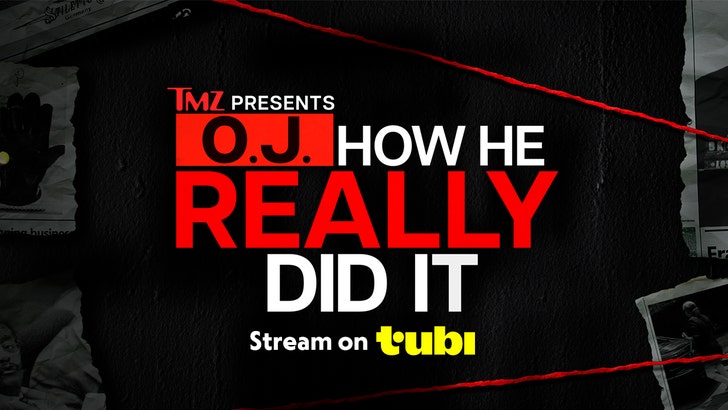
She is survived by her husband Chris and daughter Shauna.
Bofill was 70.
RIP
California
Teamsters, Basic Crafts Zero In On California’s Film & TV Tax Credit In First Week Of Negotiations With Studios; More Talks Set For Next Week

The Hollywood Basic Crafts have officially wrapped the first week of negotiations on a new three-year agreement with the studios.
In a memo to members, the unions — which include Teamsters Local 399, IBEW Local 40, LiUNA! Local 724, OPCMIA Local 755 and UA Local 78 — said more talks with the Alliance of Motion Picture and Television Producers are set for next week as they continue to chip away at a deal.
Teamsters Local 399 chief negotiator Lindsay Dougherty said in a statement that the unions are “committed to a continued partnership with these employers to increase the work here in California, but increasing work here in the state will not be done by making any concessions on behalf of our members throughout these negotiations.”
“Our proposals shared this week reflect the marching orders from our members and center around the long due respect and parity our members are owed for their skill, expertise and contribution to this industry,” the statement said.
As is typical, bargaining in the first week included opening statements and the exchange of initial proposals. However, the unions also said they’ve opened discussions on increasing and expanding tax incentives for film and television in California.
While it’s not a decision for the AMPTP to make with respect to the new contracts, it is an interesting point to bring up in negotiations, because it highlights the below-the-line crews’ desire to bring production back to the state and, more specifically, the Los Angeles area. Productions have increasingly out of California over the past decade and, more recently, have opted to shoot entirely internationally for even more cost-saving measures.
Dougherty spoke about the unions’ desire to increase those tax incentives in California during a recent interview with Deadline, explaining that “we’re not only having to be competitive with other states, but we have to be competitive worldwide. That’s just a different game.”
“It’s Hollywood. It’s the epicenter of motion picture making. Why wouldn’t you want to reward the people that not only work day in, day out, but generations of workers at this point?” she told Deadline.
-

 News1 week ago
News1 week agoIsrael used a U.S.-made bomb in a deadly U.N. school strike in Gaza
-

 News1 week ago
News1 week agoWoman handcuffed in police car hit by freight train reaches $8.5M settlement
-
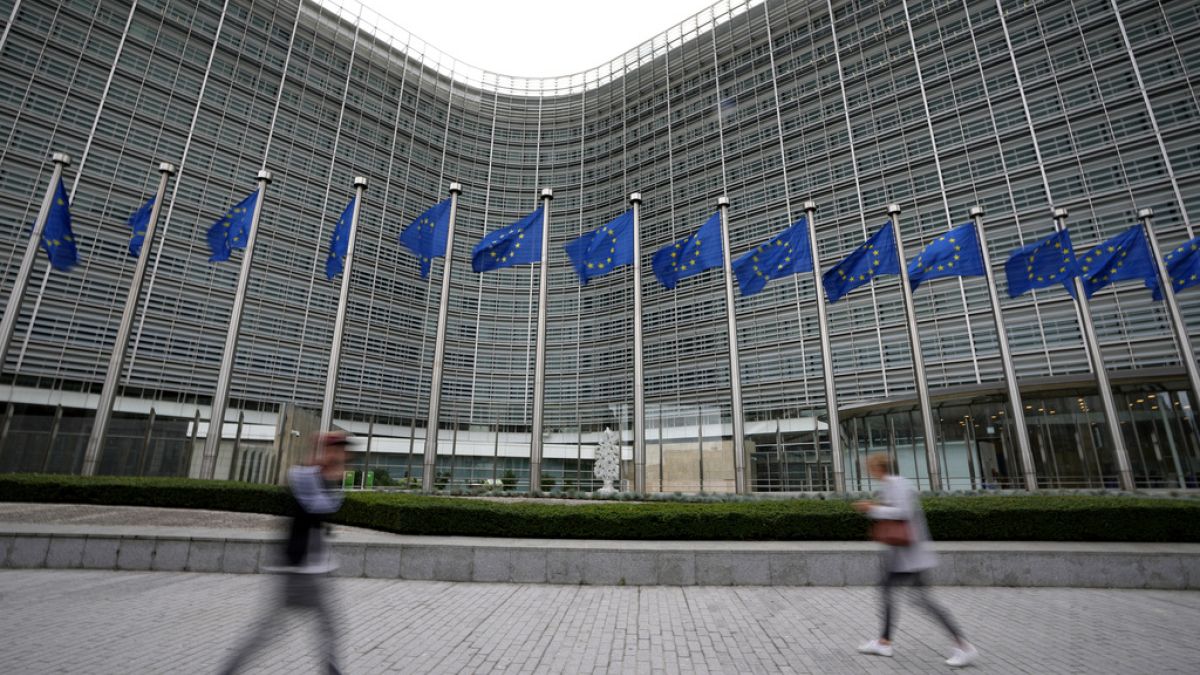
 World1 week ago
World1 week agoEconomy, migration: Voters' main concerns ahead of elections
-

 Politics1 week ago
Politics1 week agoTrump campaign accelerates vetting of potential running mates
-

 Movie Reviews1 week ago
Movie Reviews1 week agoShort Film Review: Blue and White (2022) by Hiroyuki Nishiyama
-

 World1 week ago
World1 week agoWorld leaders, veterans mark D-Day’s 80th anniversary in France
-

 World1 week ago
World1 week agoFrance to provide Ukraine with its Mirage combat aircraft
-

 World1 week ago
World1 week agoRussia-Ukraine war: List of key events, day 833











